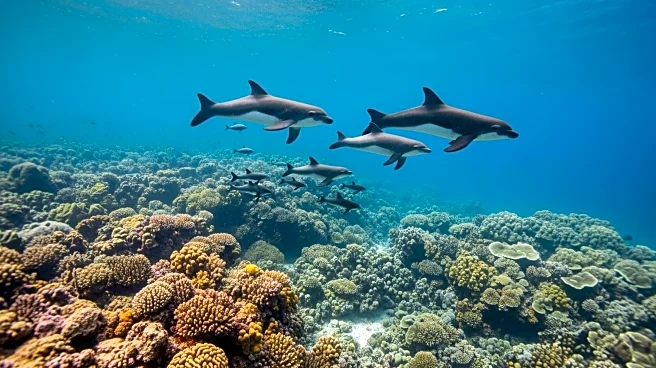What is the story about?
What's Happening?
Republican lawmakers are seeking to amend the Marine Mammal Protection Act, a key environmental law enacted in 1972 to safeguard marine mammals such as whales, seals, and polar bears. The proposed changes aim to ease restrictions on commercial fishing and marine industries, which some stakeholders argue are outdated and burdensome. The bill, led by Republican Rep. Nick Begich of Alaska, suggests lowering population goals for marine mammals and redefining what constitutes harm to these animals. Conservation groups are opposing the bill, warning that it could reverse decades of progress in protecting endangered species like the North Atlantic right whale.
Why It's Important?
The proposed amendments to the Marine Mammal Protection Act could have significant implications for marine conservation efforts and the fishing industry. If passed, the changes may weaken protections for endangered species, potentially leading to increased risks of entanglement and collisions with ships. This could impact biodiversity and the health of marine ecosystems. On the other hand, fishing groups and marine manufacturers support the changes, arguing that they would reduce regulatory burdens and promote industry growth. The debate highlights the ongoing tension between environmental conservation and economic interests in the U.S.
What's Next?
The bill is currently under consideration, with Republican lawmakers pushing for its passage. Environmental groups are mobilizing to oppose the changes, emphasizing the importance of maintaining strong protections for marine mammals. The outcome of this legislative effort could influence future policies on marine conservation and industry regulations. Stakeholders from both sides are likely to continue lobbying Congress, and the bill's progress will be closely watched by environmentalists, industry representatives, and policymakers.
Beyond the Headlines
The proposed changes to the Marine Mammal Protection Act raise ethical questions about the balance between economic development and environmental stewardship. The potential weakening of protections for marine mammals could set a precedent for future legislative efforts to roll back environmental regulations. This development may also affect international perceptions of U.S. environmental policies, particularly in relation to global efforts to combat biodiversity loss and climate change.














